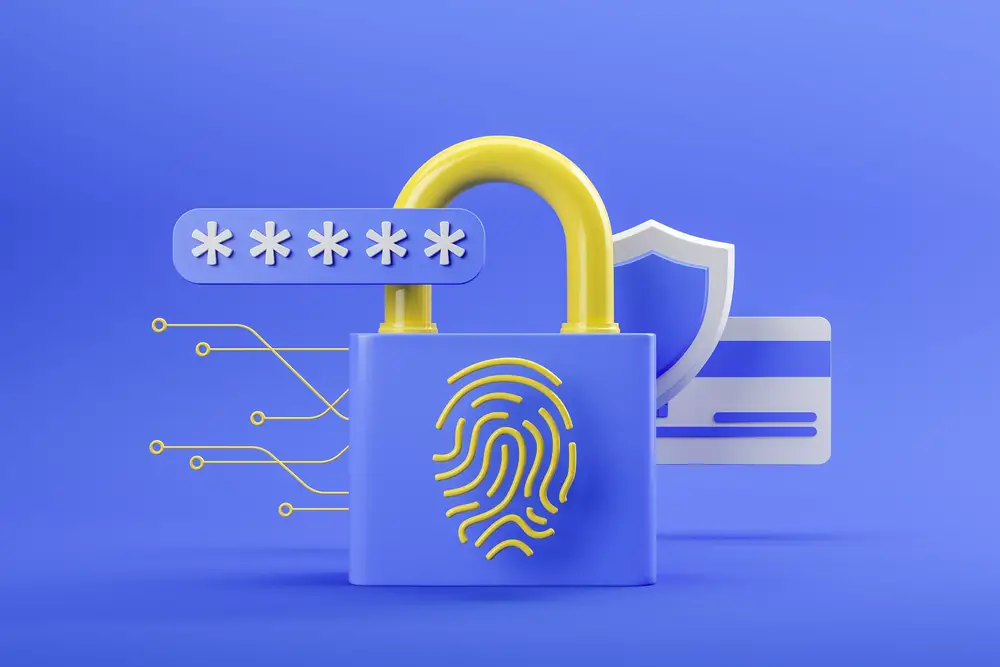How to Use Blockchain Technology for Secure Transactions in the US. Discover the power of blockchain technology for secure transactions in the US. Learn how to harness its potential for safe, transparent, and efficient financial dealings. Read now and stay ahead!
How to Use Blockchain Technology for Secure Transactions in the US
Introduction to Blockchain Technology
So, what’s all the fuss about blockchain technology? It seems to be everywhere these days, from tech news to finance discussions. But what exactly is blockchain, and why is it creating such a buzz?
What is Blockchain Technology?
At its core, blockchain is a digital ledger or database that records transactions in a secure, immutable way. Imagine a traditional ledger book where you jot down every transaction. Now, picture that ledger being distributed across a network of computers, with each entry being validated by multiple parties. That’s blockchain in a nutshell. It’s a decentralized system where each “block” of data is linked to the previous one, forming a “chain” that’s nearly impossible to alter.
The Evolution of Blockchain
Blockchain isn’t just a flash in the pan. It’s been evolving since its inception in 2008 with Bitcoin, the first application of this technology. Over the years, it has expanded beyond cryptocurrencies into various sectors, revolutionizing how transactions and data are handled. Today’s blockchains are more sophisticated, offering enhanced security, speed, and flexibility.
Why Blockchain is Ideal for Secure Transactions
Blockchain’s unique attributes make it particularly suited for secure transactions. Let’s dive into why this technology stands out.

Understanding Blockchain Security
So, what makes blockchain so secure? The answer lies in its cryptographic principles and decentralized nature. Here’s how it works:
Cryptographic Principles
Each transaction on a blockchain is encrypted using complex algorithms. These algorithms convert data into a format that’s almost impossible to decipher without the correct key. This encryption ensures that the transaction data remains private and secure from unauthorized access.
Decentralization and Its Benefits
Unlike traditional systems where a central authority controls the data, blockchain operates on a network of computers (nodes). Each node has a copy of the blockchain, and changes must be verified by consensus across the network. This decentralization makes it extremely difficult for any single entity to alter the data, thus enhancing security and trust.
How Blockchain Enhances Transparency
Transparency might seem like a contradiction to security, but in blockchain, they go hand in hand. Every transaction is recorded on the blockchain and visible to all participants, creating an open and verifiable system. This transparency helps in reducing fraud and ensures that every transaction can be audited and verified.
Applications of Blockchain in Secure Transactions
Blockchain’s potential extends beyond cryptocurrencies. Here’s how it’s being used to secure transactions in various fields.

Financial Transactions
Cryptocurrency Payments
Cryptocurrencies like Bitcoin and Ethereum use blockchain to facilitate secure, peer-to-peer transactions. Unlike traditional banking systems, which can be slow and costly, cryptocurrencies enable instantaneous transfers with lower fees, all while maintaining a high level of security.
Cross-Border Transactions
Blockchain can simplify cross-border transactions, which traditionally involve multiple intermediaries and can be costly and time-consuming. By using blockchain, these transactions can be processed more quickly and with greater security, reducing the risks associated with international payments.
Supply Chain Management
Tracking and Verification
In supply chain management, blockchain provides a transparent way to track goods from production to delivery. Each step of the supply chain is recorded on the blockchain, allowing for real-time tracking and verification of products. This can help in ensuring authenticity and reducing counterfeiting.
Reducing Fraud
Fraud is a significant concern in supply chains, particularly with counterfeit products. Blockchain’s immutable ledger helps in preventing fraud by providing a tamper-proof record of every transaction and movement within the supply chain.
Also Read – Difference Between Bitcoin and Ethereum for US Investors
Healthcare and Personal Data Security
Ensuring Data Integrity
In healthcare, blockchain can protect patient data by ensuring its integrity. Medical records stored on a blockchain are immutable and secure, making it easier to prevent tampering and unauthorized access.
Privacy Considerations
Privacy is paramount when dealing with personal data. Blockchain allows for secure data sharing while maintaining patient confidentiality. By using cryptographic techniques, individuals can control who has access to their data, enhancing privacy.
Implementing Blockchain for Secure Transactions
Ready to dive into implementing blockchain technology? Here’s a roadmap to help you get started.
Choosing the Right Blockchain Platform
Popular Blockchain Platforms
There are various blockchain platforms to choose from, each with its unique features. Ethereum, for instance, is known for its smart contract capabilities, while Hyperledger focuses on enterprise solutions. Evaluating the right platform depends on your specific needs and use cases.
Evaluating Platform Features
When selecting a blockchain platform, consider factors like scalability, security features, and ease of integration. The platform should align with your transaction requirements and provide the necessary tools for implementation.

Integration with Existing Systems
Technical Considerations
Integrating blockchain with existing systems involves technical challenges. It’s essential to assess the compatibility of your current infrastructure with the blockchain platform and address any potential integration issues.
User Training and Adoption
Introducing blockchain technology requires training for users to adapt to the new system. Ensuring that your team is well-versed in blockchain operations is crucial for a smooth transition and effective use of the technology.
Regulatory and Compliance Considerations
Understanding US Regulations
Blockchain technology is subject to various regulations in the US. It’s important to understand these regulations, including those related to financial transactions, data protection, and anti-money laundering.
Ensuring Compliance with Data Protection Laws
Compliance with data protection laws like GDPR and CCPA is essential when handling personal data on the blockchain. Ensure that your blockchain implementation adheres to these laws to avoid legal issues and protect user privacy.
Challenges and Considerations
While blockchain offers numerous benefits, it’s not without challenges. Here are some considerations to keep in mind.
Scalability Issues
Scalability remains a significant challenge for blockchain technology. As the number of transactions increases, so does the demand on the blockchain network. Solutions like layer-two scaling and sharding are being developed to address these issues.
Cost and Resource Implications
Implementing and maintaining a blockchain system can be costly. It requires significant resources, including computational power and storage. Weighing these costs against the benefits is crucial for a successful blockchain deployment.
User Experience and Adoption Barriers
Blockchain technology can be complex, and user experience plays a vital role in its adoption. Ensuring that the technology is user-friendly and provides clear benefits is essential for widespread acceptance and effective use.
Also Read – Best Cryptocurrency Exchanges for US Residents
Future of Blockchain in Secure Transactions
Looking ahead, blockchain technology is set to evolve further and impact various industries.
Emerging Trends and Innovations
Blockchain is continuously advancing with new trends and innovations, such as decentralized finance (DeFi) and non-fungible tokens (NFTs). These developments promise to enhance the functionality and application of blockchain in secure transactions.
Potential Impact on Various Industries
As blockchain technology matures, its impact will extend across industries. From finance to healthcare, the potential applications are vast, offering new opportunities for secure and efficient transactions.
Conclusion
Blockchain technology has revolutionized the way we handle secure transactions. With its robust security features, transparency, and potential for innovation, blockchain is paving the way for a more secure and efficient future. By understanding and implementing blockchain effectively, businesses and individuals can benefit from its numerous advantages while navigating its challenges.
FAQs
1. What is the main advantage of using blockchain for transactions?
The main advantage is its enhanced security through decentralization and cryptographic encryption, which makes transactions secure and tamper-proof.
2. How does blockchain ensure transparency?
Blockchain ensures transparency by recording every transaction on a public ledger that all network participants can view. This open ledger allows anyone to verify the authenticity of transactions and track their history, which helps in preventing fraud and maintaining a clear audit trail.
3. What are the main challenges of implementing blockchain technology?
The main challenges include scalability issues, as blockchain networks can struggle with handling a high volume of transactions. Additionally, there are costs and resource implications related to maintaining the technology. User experience and adoption barriers also pose challenges, as the technology can be complex for non-technical users.
4. How does blockchain technology affect data privacy?
Blockchain technology can enhance data privacy by allowing individuals to control who has access to their data through cryptographic techniques. It ensures that personal data remains secure and confidential while still being accessible to authorized parties.
5. What are some popular blockchain platforms for secure transactions?
Popular blockchain platforms include Ethereum, known for its smart contract capabilities; Hyperledger, which focuses on enterprise solutions; and Bitcoin, the original blockchain for cryptocurrency transactions. Choosing the right platform depends on your specific needs and use cases.


2 thoughts on “How to Use Blockchain Technology for Secure Transactions in the US”